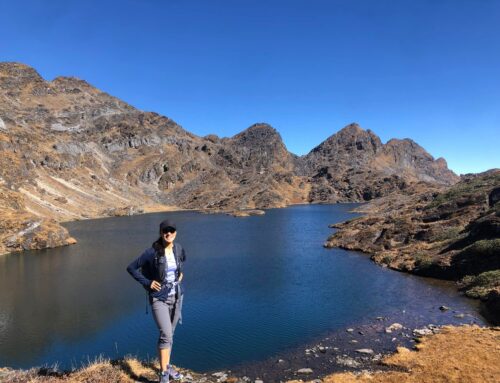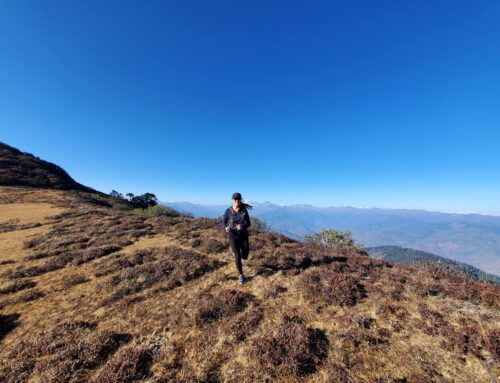Day 8
Avery common and also very wise advice from mindfulness counselors is to significantly limit your social media consumption in order not to lose your focus. One of the reasons is that unfiltered bad news and system-critical trolls stalk you on social media and spoil your life.
While I very much support the basic advice and repeatedly incorporate screen breaks for myself in order not to weaken my focus and my inner balance, I cannot fully confirm this reasoning from my own experience: I have it with the transparency of my personal preferences and the, WHAT I consciously make transparent about my online behavior and my person on the net, even in the hand of receiving such messages that I consider beneficial, balanced and rich.
And so an interview from the American media with Scott Galloway popped up this morning, it was on LinkedIn: Scott Galloway is an American marketing professor who is also a popular keynote speaker at German top-class industry events such as the Online Marketing Rockstars Festival in Hamburg is. "Popular" may not be the right attribute - Scott Galloway is a sharp-eyed analyst with pragmatic realism. With blunt directness and breathtaking eloquence, he knows how to outline the big tech industry, consumer behavior on this globe and the consequences thereof not only for the advertising industry, but especially for society and politics. His key message in this interview: Capitalism will collapse if entrepreneurs do not develop their empathic skills more strongly and focus on LOVE as the central purpose of their actions and leadership. Even if the OMR is known as progressive, and for that very reason is currently very successful in the marketing industry in Germany - I think many of the crowded halls that have been listening to Scott Galloway in recent years would be wrong about such a statement and Smile knowing full well: "It's all well and good, but in our business that is unthinkable, forget it".
The next post that followed was a post from Safia Minney https://safia-minney.com. I met Safia 10 years ago in an American Breakfast Bar in Manhattan, an incredibly engaging, energizing personality. She stands for ethically correct entrepreneurship and is one of the forerunners for this zeitgeist in Great Britain. In today's post - also on LinkedIn - she quotes from an article about the increasing importance for entrepreneurs to include the monetary risks of climate change on their balance sheets.
Furthermore, I came across a post from Mathieu Ricard - Mathieu Ricard https://www.matthieuricard.org/en/ is a French scientist, but above all famous as the happiest Buddhist monk, who among other things assisted to the Dalai Lama for many years as his translator. This morning he quoted the Dalai Lama on Facebook on the subject of compassion: Compassion and generosity must be free from selfishness - an Italian restaurant owner who happily chats with his guests and takes part in their lives is actually not driven by compassion, but by the ambition to increase sales through a relaxed atmosphere - one of the few statements by the Dalai Lama that I would not fully agree:
With every decision we make as an entrepreneur, as a manager, we make ourselves "guilty" - we are pursuing a goal and the goal is without exception growth. This self-interest is not right or wrong per se, and certainly not morally reprehensible at all: We strive for added value that allows us to lead a good life. The question is, how do we define "added value" - and how we "lead a good life": If only short-term profit maximization on the balance sheet and the accumulation of sales and profits have priority for my individual standard of living as the currency for added value, then this does not correspond to my pleasure principle for entrepreneurship. Let's stick with the example of the Italian restaurant owner: If he can convey his customers not only with his good cuisine, but also with an intense attitude to life for sociability, affection and friendship, then that is an economic asset that is definitely worth striving for - I am also willing to pay money for that! Of course, guests can also be happy without wine and in their own kitchen or at the barbecue in the garden. But we humans also like to enjoy and there is an infinite variety of enjoyment to experience with all of our senses - that is a luxury that is not reprehensible at first. Other people work hard for some of these enjoyment experiences, and therefore it is very legitimate for the people who enjoy them to pay for them. Holistic added value is created when compassion and generosity are priced into the entrepreneurial activity: When the Italian restaurant owner offers homemade pasta made from ecologically and health-friendly wheat, sources fish and meat according to sustainable criteria from ethically justifiable fishing areas and breeds. And when the suppliers then receive a fair price for it that does justice to the value of their productivity and also allows them to "lead a good life". These ethical business cycles are costly - everyone involved must be able to afford it. But that is not a contradiction, but a principle: holistic added value arises when all participants in the value chain have the well-being of the ecosystem in mind. Then why shouldn't the Italian restaurant owner also enjoy indulgence with his customers?
Due to the current pandemic, the entire restaurant industry is in a very, very painful imbalance in many countries. I would like to see my favorite Italian smile again soon - not just out of happiness for the interpersonal encounters, but because I want to feel his relief at being able to generate sales again. I hope that love and compassion will not get lost in the pandemic and that it will become the decisive driver for future corporate success!




